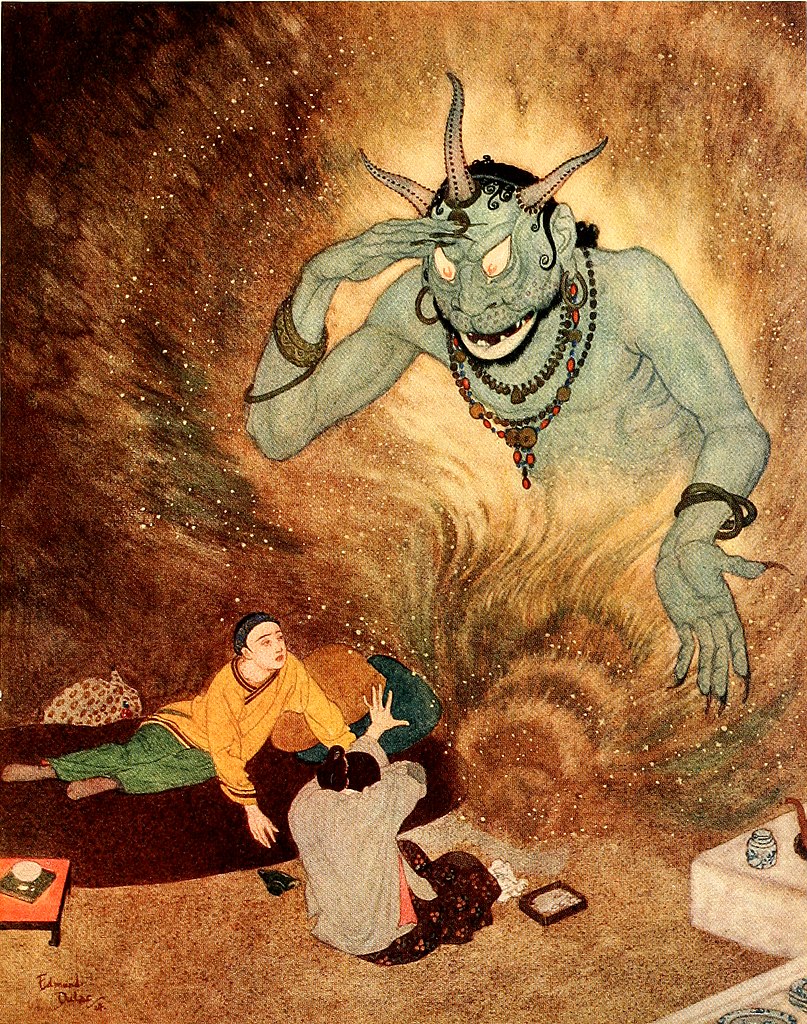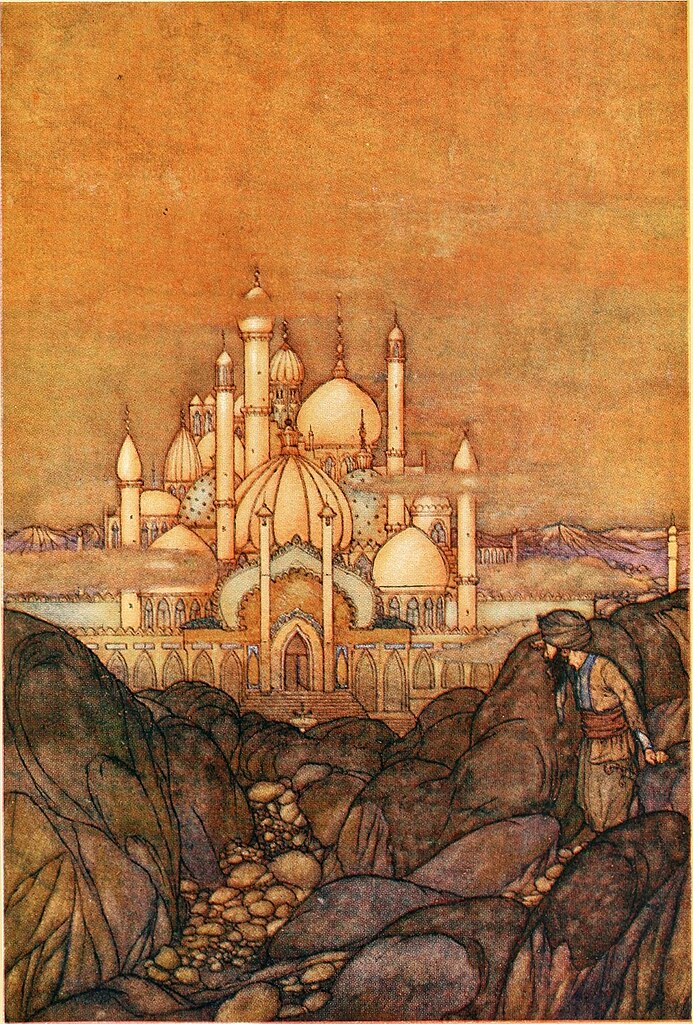
Today I want to make a somewhat different, fun and interesting post, and talk about a book. A book I like very much, called The Thousand and One Nights, although popularly known as The Arabian Nights.
First of all I must admit that I have not yet finished reading this book, as various causes external to me have prevented me from doing so. However, I already consider it one of my favorite books, and one of the most entertaining I've read so far.
It's basically a collection of medieval oriental tales, mainly set in the Muslim world of the High Middle Ages. The stories are often interspersed with one another - and one within another - so that sometimes one is reading a story told in another story, which in turn is told within the main story.
A story of such marvel that if it were written with a needle on the corner of an eye, it would yet serve as a lesson to those who seek wisdom.
The stories contained in the book are full of wonders and prodigies. There are powerful magicians, thaumaturges, jinns who conveniently intervene in the story, legendary animals, enchanted objects and all kinds of extraordinary events.
All these fantastic elements seek to fascinate the reader, which they undoubtedly did for me. And the characters in such stories share the fascination with me. These are not ordinary things we read about, nor are the characters who live them accustomed to such events. Blessed are the eyes that see such wonders, and blessed are the men who witness such moments.

It is best to read them with an open mind and let your thoughts fly free through the scenarios described therein, because they really have the effect of, at least personally, making me feel like a kid again, immersed in a mysterious world where anything can happen, and fill me greatly with a childlike joy.
I like to read stories where the caliph poses as a beggar to venture into the city; sublime, yet terrifying Ifrits appear in the most remote places, flying, shape-shifting, locked as slaves in objects since the time of King Solomon; or simply magicians use their skills to change nature in really ingenious ways.
It really takes me back to the era in which it was written, with all its mysteries and charms.
The inevitability of destiny.
Now, a recurring theme in the book, perhaps the main one, is destiny. How certain things are destined to happen, and how fate, with its irresistible force, makes even the most remote events happen. Characters who were separated by adverse circumstances, and who, although far away, unfortunate, dejected, poor, or with any other obstacle, are pushed to meet again by destiny for the inevitable to happen. The lost son of the king who is destined to rule; the lover who is destined to be with his beloved; the relatives who are destined to be reunited.
This usually takes place under a resource known as deus ex machina, in which an element external to the plot of the story intervenes and magically makes happen what was meant to happen. A jinn can simply meet the main character of the story and decide to help him or her, or conveniently take them to the place where they should be. The explanation for this would be the very inevitability of fate, and how, in this case, fate uses the jinn as a tool - as it could also have used any other element - to happen. It is not simply a "coincidental" event, but something that was previously scripted.
This is one of the things in this work that reminds me of Greek and Roman myths, where fate played an important role, which was as inevitable for humans as for the gods, and which you could either accept bravely, like the heroes, or run away from it, although not successfully.
_(14752969022).jpg)
Are they real?
Many of the places mentioned in some of these stories are real, and historical figures such as the famed caliph Harun al-Rashid are also occasionally involved. This raises the question: Are some of these stories true? To which the answer is likely to be no. Without dismissing, however, some things that we have to take into consideration.
Most modern people would probably reject the stories because of their degree of supernaturalism, however, keep in mind that at the time of their origin, most people strongly believed in all sorts of marvels. They were very different societies, more religious and more prone to think about this kind of things, in which cases of alleged sorcerers and witches, chimerical beasts, fantastic beings and people with all kinds of supernatural abilities abounded. So I would not rule out that some of these stories may be based on real historical events (or at least pretended to be real at the time) which, most likely, were later modified when written for entertainment purposes.
I have heard people take some of the events described as being based on real events. Although, even if we are open-minded and admit the supernatural, there would be another series of difficulties that could present some doubt, such as the way in which the events take place, the way certain characters act, etc.
For me, the moment I open the book and start reading it, these stories are one hundred percent real, but the moment I close it, I don't worry about that anymore.
Regardless of whether these stories are true, false, or anywhere in between, I think they are definitely very entertaining and fascinating. Besides the fact that they are beautifully written. The best thing, I think, is not to worry about any kind of logical coherence, and just enjoy a work that I can really only praise.
What do you think about it? Do you believe in magic and spells and charms and all that? Do you believe in fantastic and supernatural beings? In destiny? An interesting topic indeed.